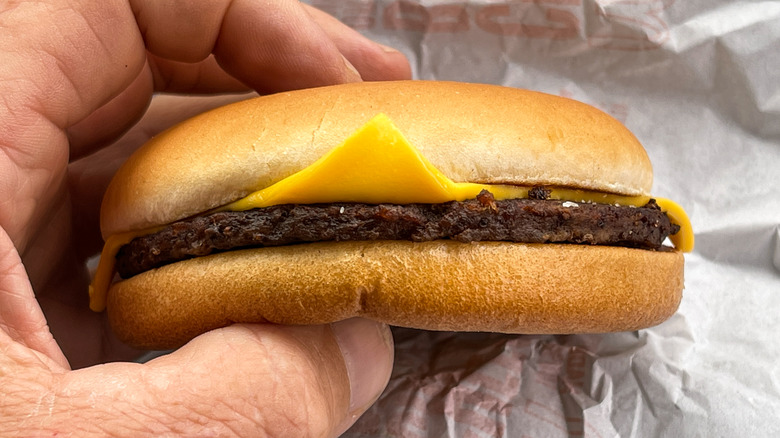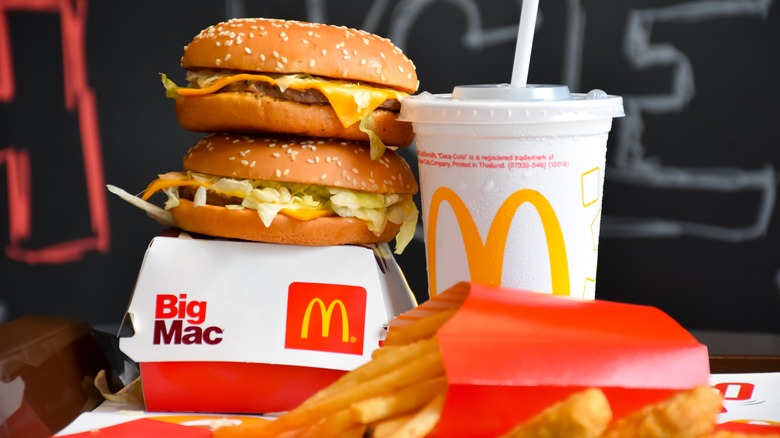Is It True That McDonald's Burgers Don't Rot? Here's What We Know
Back in 2020, a viral video (and plenty of ensuing news stories) claimed that a woman had stored a McDonald's burger and fries in a closet for 24 years — and that the food hadn't rotted. But it wasn't even the first time such claims had been made. In 2015, an Icelandic man revealed that he'd kept a McDonald's burger for six years without it decomposing. And in 2008, a teacher also claimed she'd stored a burger for 12 years, and that it looked similar to a freshly-bought product. (Perhaps unsurprisingly, none of these people seem to have tried tasting their well-aged hamburgers.)
Go on YouTube or social media, and it's not hard to find other people making similar claims, accompanied by general speculation that these burgers are so full of preservatives, chemicals, or even just salt that they don't break down. So, are all these people right that McDonald's burgers really don't rot? Unfortunately, the answer is a somewhat unsatisfying "It depends."
Unsurprisingly, McDonald's is not a fan of such claims and has even published rebuttals online, asserting that its food does indeed rot — and also arguing that there's nothing weird in there, and that McDonald's uses USDA-inspected beef. Why didn't the various viral burgers fail to rot? It's about the way they were stored, says the company. And other independent sources have backed this up.
Why storage impacts the lifespan of McDonald's burgers
The simplest explanation for the non-rotting burgers is that they dried out before they could decompose. The official McDonald's explanation is that if food gets dehydrated enough, it won't rot or get moldy. In this state, the meat could be compared to long-lasting beef jerky, while the condiments — like that bright yellow mustard — have enough salt or acid that they also won't rot.
These fossilized specimens would never make the list for a McDonald's burger ranking. But what would it take for these burgers to rot? Chef J. Kenji López-Alt conducted a few experiments to figure this out. López-Alt gathered different McDonald's burgers and left them to age in the open air. He also tested homemade burger patties. Only the larger McDonald's patties (like a Quarter Pounder) grew a little bit of mold; The reasoning is that these larger pieces of meat take longer to dry, so they had more time for mold to grow. The others had mostly dried up within three days, which wasn't long enough for mold to appear. But, importantly, the homemade beef patties dried up in the same way. López-Alt also tested McDonald's and homemade burgers by leaving them in zip top bags — a storage method which trapped moisture, and caused both burgers to grow mold.
While it's not clear how the viral rot-free burgers were stored, they were likely left out in the open in houses or apartments, where the humidity could have been around 40%. If they'd been put somewhere more moist, they would have been much more likely to rot.

